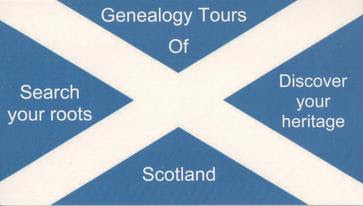At the age of 15, Isaac entered an apprenticeship with William Guild and Company, West Indian merchants. This led him to a prosperous career as a merchant himself. In 1830, young Isaac was made a partner in the Guild’s company and soon headed for Montreal to assist Willam Jr in setting up a business there. In December 1831, Isaac opened a branch of the Montreal company in what was then York, but is now Toronto. This quickly became the largest exclusively wholesale firm in the province. In 1834, Isaac entered into a business partnership with his brother, Peter. The partnership consisted of two companies, Peter Buchanan & Company in Glasgow and Issac Buchanan and Company in Toronto. The two brothers jointly owned both companies. These companies dealt in dry goods.
In addition to being a prominent merchant, Isaac became involved in politics. He founded the city’s Board of Trade and was president of both the St Andrew’s Society and the Toronto Club. In addition, he was chairman of the trustees of St Andrew’s Presbyterian Church. Isaac commanded a troop of “incarnate devils” – a group of predominantly Irish men during the 1837 Rebellion, serving in both Toronto and Niagara.
Following the Rebellion, Isaac moved to Hamilton and opened
a new warehouse business. In 1843, during a return to Scotland, Isaac met and married
Agnes Jarvie, the daughter of a fellow Glasgow merchant. Agnes was 15 years
Isaac’s senior. Together the couple had 11 children.
Isaac’s business in Hamilton continued to flourish and in
1852, he commissioned a “country” home on the escarpment where he owned 86
acres which he named Clairmont Park. Clairmont Park consisted of a gate house
(now in private hands and in a state of serious disrepair and neglect), an arched
entrance to his home’s 10 acre lot, a stable, a two story dovecote and a grand
gothic style mansion. In addition to the home and the outbuildings, the estate
had an orchard and a walled kitchen garden, making it quite self sufficient.
The home itself was completed in 1854 and was built in a grand gothic style with 12 bedrooms, numerous fireplaces/chimneys, leaded glass bay windows and arched doors. It was here that the Buchanans entertained the wealthy and the famous, including Sir Allan MacNab, Sir John A Macdonald, Lord Dufferin, the Prince of Wales and Pope John Paul II. Buchanan named the house Auchmar, after the estate in Stirlingshire that his father had owned.
As he had in Toronto, Buchanan established a Board of Trade in Hamilton. He founded a militia regiment in 1863, which later became the Hamilton Light Infantry. As well, Buchanan was instrumental in bringing the Great Western Railway to the city.
The Buchanans lost their precious home to bankruptcy in the
1870s, which necessitated him selling the home. It was later purchased by
Captain Triggs. Triggs made some internal modifications to the home,
repurposing the various rooms on the ground floor.
In 1900, the home was once again for sale and was purchased again by the Buchanans.
This time by Issac’s son James and daughter Elsie. While James was a living and
working in Pittsburgh, Elsie resided in the home. The house became home base
for several of her siblings who would send belongings to be stored. It is
claimed that at one time, Elsie was in possession of 42 trunks with personal
belongings of her siblings. Various siblings also came to stay when in the area.
As a means of staffing and funding the home, Elsie set it up
as a home for unwed mothers. The mothers learned chores and skills and took the
place of servants. Once they had gained sufficient skills, they would go on to
work as domestics or nurses for other families.
In 1926, Elsie sold the home to textile merchant Alan V Young. The Youngs stayed in the home until 1943 when they turned it over to the RCAF who used it as a convalescent home for airmen suffering from burns.
Following the war, rather than return to the home, AV Young sold
it to the Sisters of Social Services. The Sister converted the stables into
living quarters and new wing with private rooms was added in 1961, along with a
chapel. Sadly, the new wing does not fit into the aesthetics of the grandeur of
Auchmar, which the Sisters renamed to Mount Cenacle. The mansion was used as a
retreat. The retreat and convent closed in 1971, leaving the mansion and
grounds to deteriorate.
A bedroom (thought to belong to one of Buchanan's daughters)
The mansion and remaining 8 acres of land are now in the control of the City of Hamilton. Auchmar has Ontario Heritage Status, which ensures its preservation. The non profit group Friends of Auchmar works to maintain interest in and to preserve the history of Auchmar. Auchmar is of significant historical importance being a grand country home of a well-to-do and influential Hamiltonian from days gone by. It requires and deserves the same conservation and preservation as Dundurn Castle and should be restored to its former glory, opening as a museum to keep the history of not only the estate, but of the Buchanans and indeed the City alive. As with everything else, funding is the barrier. Heritage and Cultural grants are insufficient. What is needed is some serious crowd funding. And the targets should be those who have benefited from Buchanan’s legacy:
- The Toronto Club
- The St Andrew’s Society of Scotland
- Toronto Board of Trade
- Hamilton Chamber of Commerce
- The Hamilton Light Infantry
And perhaps other donors could include The Sons of Scotland
and Clan Buchanan. Surely together this group could make some serious headway
in getting the necessary renovations off to significant start.



















